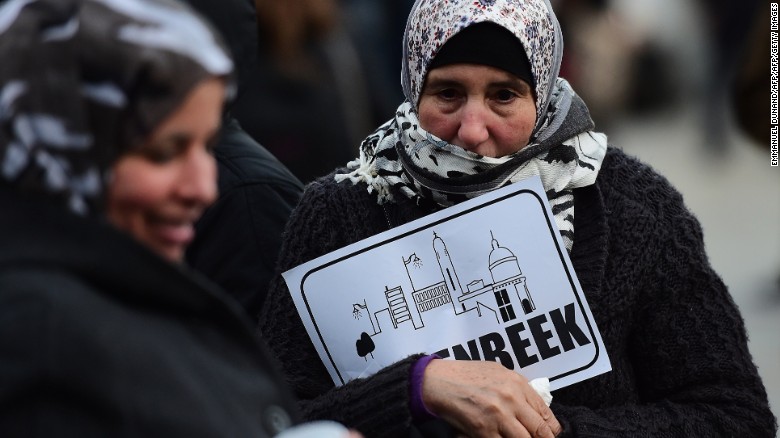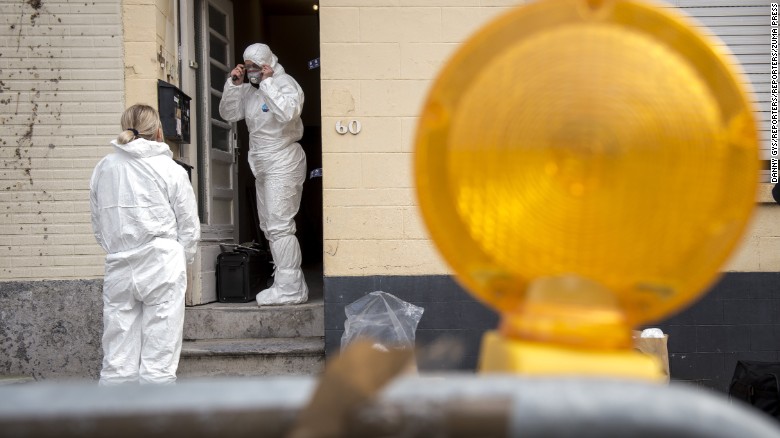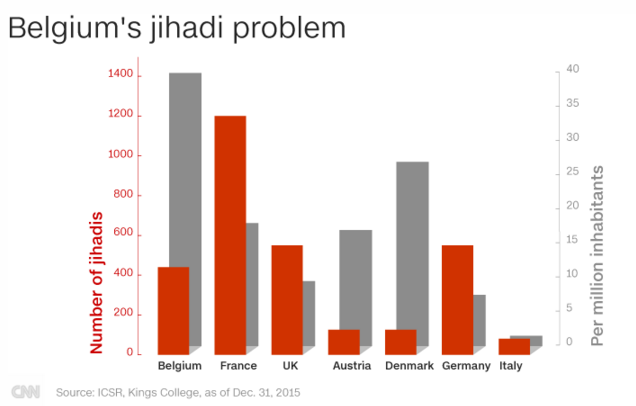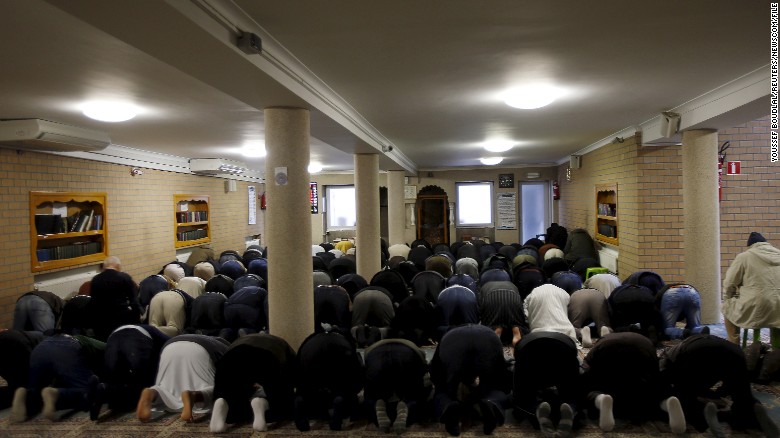Belgium: Europe’s front line in the war on terror

Belgium — Brussels: It's a quaint but bustling city, famed for its picture postcard squares, its chocolate and its beer. But it is rapidly becoming infamous, too, as a fertile recruiting ground for jihadi fighters.
According to police, the carnage of the Paris attacks was plotted here, and it was in these streets that fugitive Salah Abdeslam hid out in an apartment after abandoning his mission, dumping his suicide belt in a Parisian street and calling friends for help, after apparently driving his co-conspirators to their deaths.
That Abdeslam was caught at all appears to have been an enormous stroke of luck. Despite a massive security operation, the trail appeared to have gone cold, until police, initiating a search for evidence at Abdeslam's safe house on Tuesday, encountered a barrage of gunfire which tipped them off that something — or someone — important was inside.
Abdeslam and another man are believed to have escaped while a fellow suspect distracted police; he was eventually shot dead but by then Abdeslam had fled, across the rooftops.

Three days later, on Friday, officers finally cornered him in a daring daytime raid on another apartment, bringing to an end an international manhunt that had lasted more than four months.
But authorities here still don't know what if there are any other terror plans in the works, even with Abdeslam himself finally captured alive and charged, awaiting extradition to France.
Hotbed of jihadist ideology
Belgium remains wary and on edge, its alert level stuck at "grave" — the second highest stage — with security forces warning of a very real threat of attack.
In the past several weeks, CNN went to Molenbeek, a working-class district that has found notoriety as a hotbed of violent jihadist ideology, to find out what — if anything — had changed since the bloodshed in Paris four months ago.
It took months to coax people to meet with us. Many had received threats from self-proclaimed extremists directly to their mobile phones, warning them against speaking to the media.
Belgian officials have been unable to quell the flow of fighters traveling to ISIS territory, and — perhaps more worryingly, authorities are terrified the fighters will bring another Paris-style attack — back to Europe.
Brussels is just a short drive away from a host of major cities: Paris, of course, but also Amsterdam, Cologne, Strasbourg, Frankfurt, Berlin; hop into a car or onto a train and almost anyone can travel between any number of European cities within a few hours. Only recently, especially after the Paris attacks, did some European nations begin implementing immigration checks.

Per capita, Belgium has the highest number of foreign fighters in Syria of any Western European nation. Experts say nearly 500 men and women have left Belgium for Syria and Iraq since 2012.
At the same time, they say more than 100 Belgians have returned home from ISIS territory— many facing immediate arrest.
But everyone CNN spoke to admits these numbers err on the conservative side; no one knows for certain exactly how many have gone and how many have returned.
ISIS recruiting new members
Belgium's Interior Minister Jan Jambon told us the security forces' work to counter terrorist threats is having an impact, but admits ISIS recruiters are still able to ply their extremist trade in Belgium.
"Recruitment continues — at a much lower level than we were used to, for example two years ago — but yes, it continues," he says. "It is difficult to find the people that are [responsible] — you can do it in a small room in every house."
Family and community members brave enough to try and stop the radicalization open themselves up to threats — and the possibility of worse.
"We live in an era where everybody that tries to speak out and stand up for the truth will find people trying to stop him from doing so," says Belgian Imam Sheikh Sulayman Van Ael.
For Van Ael, a convert who is outspoken on the issue of jihadism, the dangers are very real; we meet in secret, his bodyguard hovering nearby throughout our conversation.
But he insists: "I am not afraid … I am taking precautions, but I don't hide — I get out, I walk around. Whatever has to happen will happen. It's not a nice feeling knowing that people are like that. But it doesn't frighten me."
Imams, he says, must be willing to contest the Islamic justifications being used by ISIS and their ilk.
Sense of marginalization
Geraldine Henneghien also took the risk to speak to us. Her son Anis is one of those who was recruited to the ISIS cause; he was later killed in Syria.
For her the threats have become a reality of life like any other; when we ask whether she's afraid, she laughs bitterly: "What else can I lose? I've already lost my son. They can't do anything more to me."
Henneghien says recognizing the clues that someone is being radicalized is not easy.
"Every sign is different, and when you look at them separately they don't look like signs of radicalization," she explains. "But when you see the whole picture, you realize that these are signs, that they are part of the recruitment process."
Ali (not his real name) agreed to speak to us on condition of anonymity. He sobbed as he told of how two of his brothers, members of radical Islamist group Sharia4Belgium, made the trip to Syria, where one was killed on the front line.
He believes discrimination and a "lack of opportunities" in Belgium has driven many young men into harm's way because they simply don't feel accepted at home — jihadi recruiters exploit this sense of marginalization.
"The Belgian state rejects children and young people; they say, 'They are all foreigners, why should we give them a job?' They fill us with hate, and they say we aren't of any use, so when young people see what's going on over there [in Syria], they think 'Well OK, let's go there and be useful.'"
Turning a blind eye
Ali believes the Belgian security services are turning a blind eye to people going to Syria as a way of getting rid of them: "They wanted to get rid of these youngsters by letting them go."
He accepts that his brothers were ultimately responsible for their own actions, but thinks more could have been done to stop them.
Henneghien says she went as far as reporting her own son to the police in an attempt to block him leaving the country — to no avail.
"Two weeks before he left, I went to the police and said 'My son is going to catch a plane on this particular day to leave for Syria,'" she told us.
Concerned he could be a member of a terrorist network, a magistrate added Anis to a watch list, but he still managed to get out of the country.
"The day my son left, I went to the police to tell them and they didn't do anything," Henneghien recalls clearly. "They told me: 'Your son is not a minor, so we can't do anything … He is allowed to go wherever he wants, whenever he wants.'"
Anis was 18 when he left Belgium in 2014. The following year, she says, she was told he had been killed in Syria.
Nothing can bring her son back, but Henneghien argues that Belgium should be doing more to encourage other young men and women like him to return home.
"The message of the authorities is: 'OK, you left so do not come back.' They don't help us recover our children, they just leave them there," she says.
"Instead of telling them, 'We will talk to you while [you’re] in prison about your motivation … and later we will help you be part of this society again,' we give them the message, 'No, do not come back — if you do, you will be imprisoned forever.'"
Jambon insists the government is working hard to prevent radicalized youngsters leaving the country, but admits it still has work to do.
"One-and-a-half years ago, we had 15 persons per month leaving for Syria or Iraq, now it's less than five. Five is too much, I am aware of that … If you see that people are still leaving to join ISIS, we didn't do enough. That's clear. The aim, the goal, is zero people."
But Montasser Al De'emeh, founder of a Brussels-based deradicalization center, says there's only so much anyone can do to stop someone truly determined to leave.
"You can't stop people from leaving by force," he says. "It's impossible for this to be the solution. There are people who were barred from leaving and jailed; after eight years they were released and they managed to leave."
Instead, he says, "You stop people from leaving by helping them build a future, by helping them understand who they really are."
Heavy-handed response
Ali's surviving brother did eventually return to Belgium, where he was jailed. But Ali says the entire family has been left feeling like criminals after armed police investigating the pair's radicalization raided the family home as his wife, children and mother slept.
"It was like a hold-up, like something from the movies … There were 10 of them, maybe more, and they aimed guns at us all … Why so much violence? They found nothing, no weapons, no explosives, nothing. But the way they came into our house was as if we were armed from tip to toe."
He says the security forces heavy-handed actions have been counterproductive, turning the family and their friends and neighbors against the authorities: "This has only filled us with hate."
Yassine Boubout, too, says the actions of the police and security personnel are provoking more and more Belgian Muslims to act against their own country. The 18-year-old student says he was the victim of racial profiling, treated "like a terrorist," and arrested at gunpoint as he tried to buy lunch.
"I grabbed my meal and before I got to the register they held a gun, a military weapon, in my face," he recalls. "They commanded me, 'Get on your knees now!'
"I kept asking 'What's happening? Why am I here? Please put the gun out of my face.' It was ready to fire, the [safety] was off and the finger was literally on the trigger — one little move that would scare them and I am pretty sure I could be shot … I was scared for my life."
After 20 minutes on his knees in the store, where he was a regular customer, Boubout says he was thrown into a police cell for more than three hours before being released without charge — and without an explanation. A week later, he says he was told he'd been arrested because, "I looked like a suspect … I fit the description and that was enough."
Boubout says such treatment "gives those people who recruit a weapon to use; they can [say] 'See, this society is a racist society, they don't want you here.' That's a key factor for them that they use."
Racism a push factor

Jambon says the majority of young Muslims are well integrated into Belgian society, but admits his government has more to do to make some feel "at home" in their own country, given that a sense of alienation can leave them open to the threat of radicalization.
"We're talking about third- and fourth-generation [immigrants]; these youngsters are born in Belgium, even their fathers and mothers are born in Belgium, and still they are open for these kind of messages. This is not normal — in the U.S., the second generation was the President; here, the fourth generation is an IS fighter — so that is really something we have to work on."
Van Ael says Belgian Muslims must also do their part.
"There is no reason why you shouldn't feel Belgian — this is the country you were raised in. This is the country where you have been fed, where you went to school, where you had your friends, where you practiced your sports. So why all of a sudden you don't feel Belgian?" he asks.
"There is no reason to feel like that. I believe that it is part of our Islam that we protect the country we were raised in and that we try to make the country we live in prosper."
But for those left behind by would-be jihadis, Ali has a stark warning. He says his brothers' decision to go to Syria — and the Belgian authorities' treatment of those they left behind — has "destroyed" his family.
"This has broken everything," he says, sobbing. "Our future looked bright but now nothing is left."
For those at the front lines of this battle everything is at stake.
Политика конфиденциальности | Правила пользования сайтом








